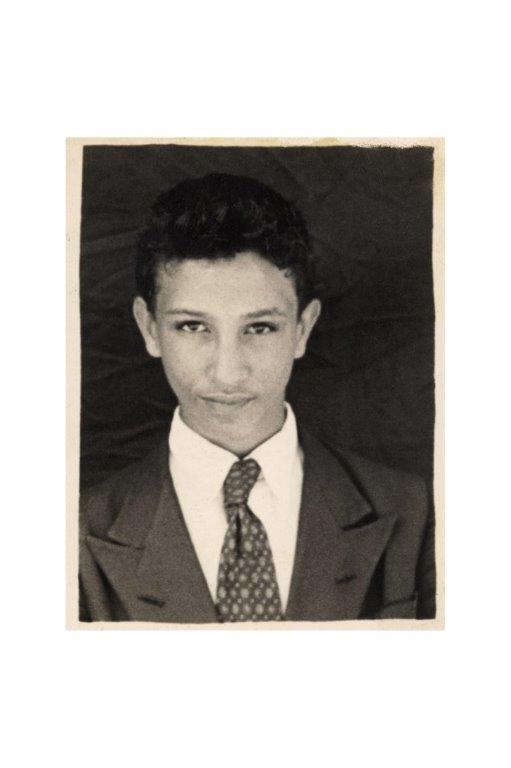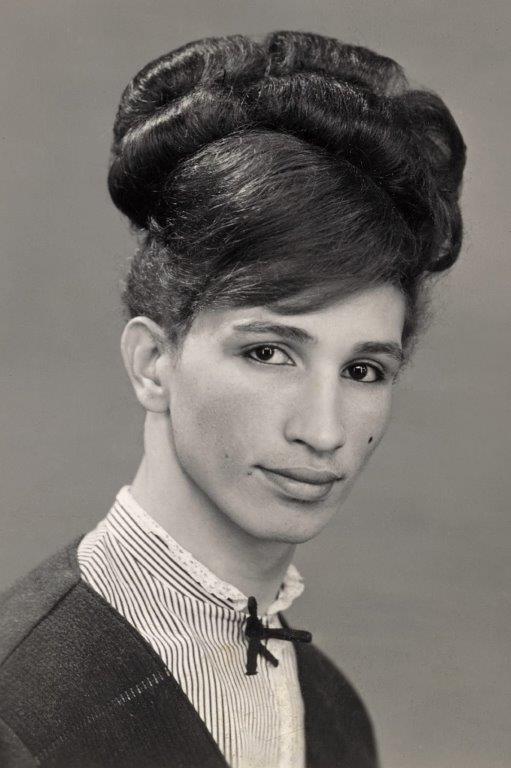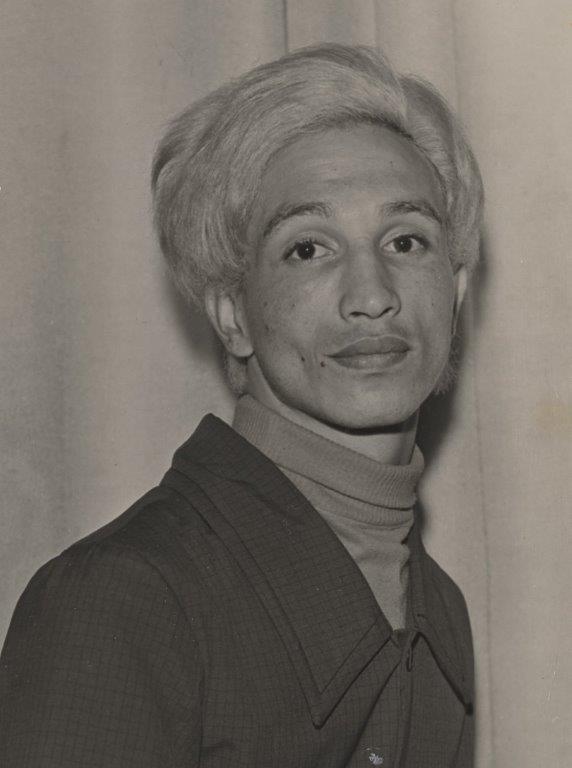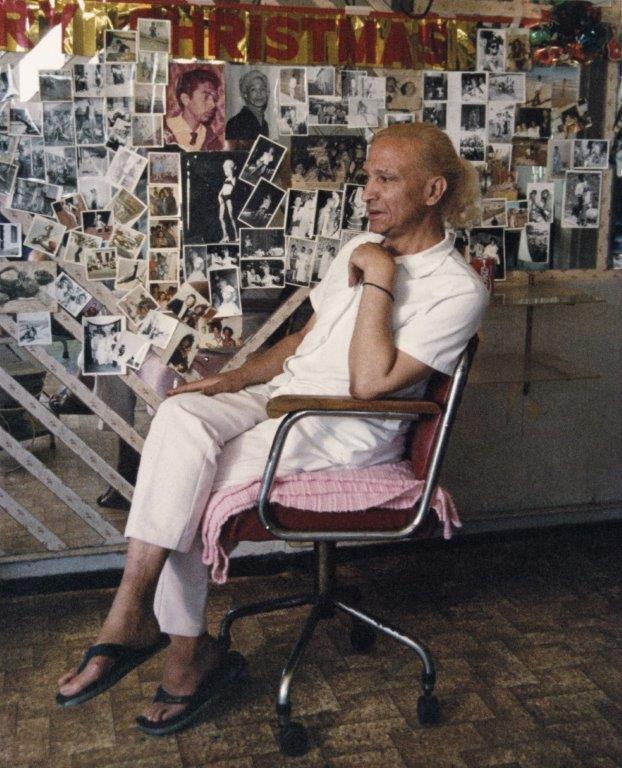Kewpie was born in District Six in 1941 to Jean and Walter Fritz. She was one of six children but only Kewpie, Ursula and Trevor survived to adulthood. Despite poverty and overcrowding, Kewpie remembered having a “beautiful childhood” in District Six.
She had a good relationship with Jean, who Kewpie said “came to love the gays”, but Walter would not accept Kewpie’s sexuality and gender identity, and their relationship deteriorated as Kewpie got older. Despite a lack of closeness, Walter supported Kewpie professionally, arranging for Kewpie to manage a friend’s salon and fitting all the equipment.
Kewpie, whose birth name was Eugene Fritz, was named after the Kewpie doll (a popular children’s toy) by her aunt Joyce. It is common for gender-diverse people (e.g. someone who identifies as transgender, non-binary, gender-queer) to choose a name that affirms their identity in ways that their birth name does not. Kewpie didn’t necessarily shy away from her birth name and had even named one of her salons, ‘Yugene’s Hairtique’. Although we can assume Kewpie had a certain level of ease with her birth name, often people who have chosen names would consider their birth names to be “deadnames”. It is considered disrespectful and insensitive to ask someone what their deadname is, or to intentionally call someone by their deadname.
Kewpie was a talented performer from a young age. She embarked on eight years of dance training at the University of Cape Town’s (UCT) Ballet School. She was then invited to study overseas at age 14, but her father rejected the invitation on Kewpie’s behalf. Kewpie’s reaction to this disappointment was to “bang back into my gay life”, attending gay parties and competing in queer beauty pageants.

Berlin Mission School, Searle Street
c. 1950


Rutger Street

Yugene’s Hairtique, 5th Avenue